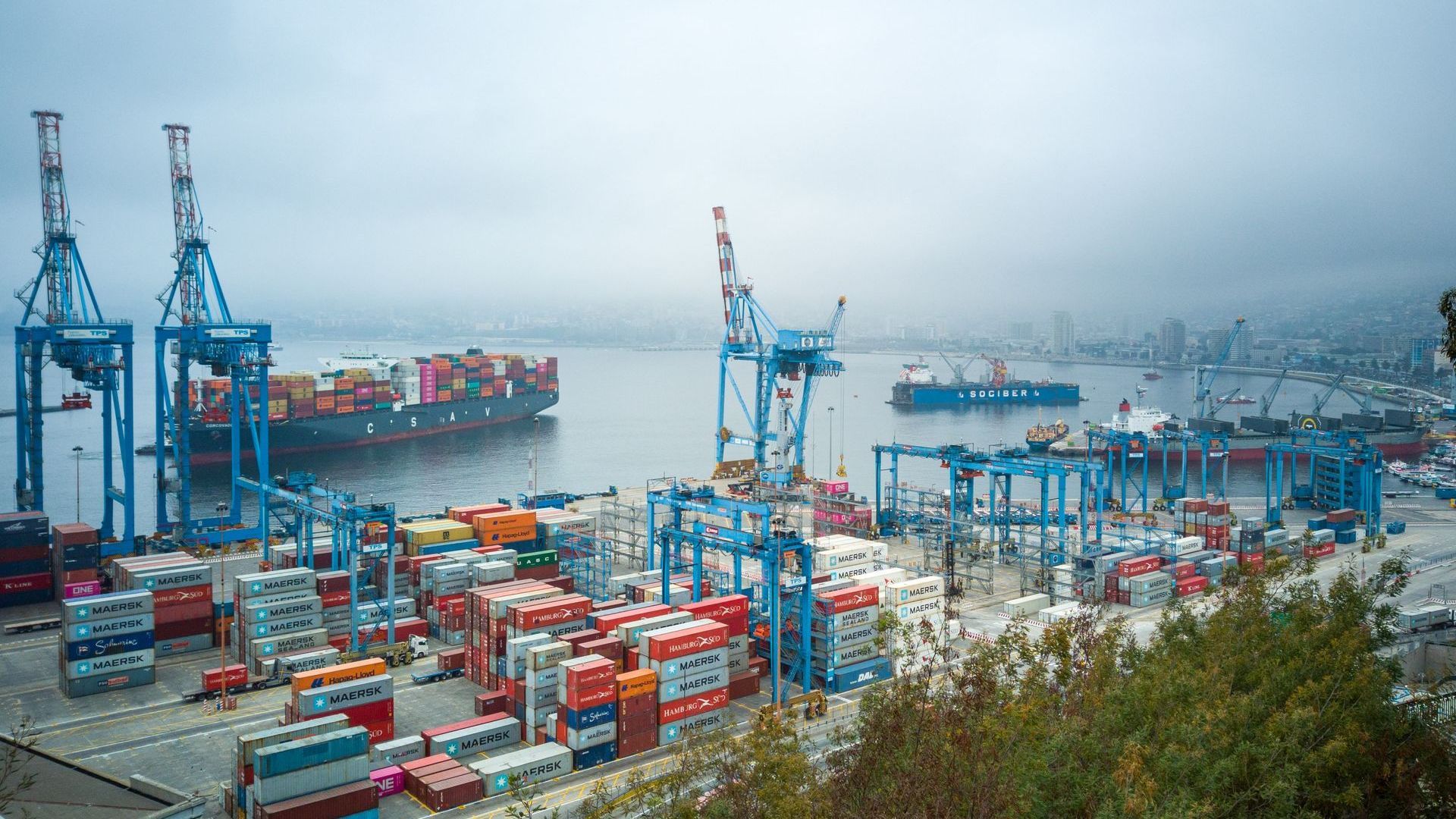Understanding The Importance of Reshoring Manufacturing
A new trend called “reshoring” is set to take over global supply chains impacting various industries, including manufacturing, medical, and automotive components and computer chips.
According to the Bank of America, mentions of “reshoring” in S&P 500 earnings transcripts were up 128% in the first quarter compared to the same time a year ago – displaying an even higher growth than mentions of “AI.”
In this post, we’ll cover the fundamental aspects of reshoring manufacturing, its implications for North American companies, and other essential information.

What Is Reshoring?
“Reshoring” refers to the phenomenon whereby companies move production from overseas to the countries where goods are sold.
In North America, companies in various industries are shifting production home as a result of the recent reduced factory activity in China and disruptions to the supply chain due to the war in Ukraine. Within these industries, there is a desire to react quickly to increased production demands by ensuring their suppliers are capable of producing high-quality goods at high-volumes. These changes also come as various governments, including the US, create incentives to reshore production.
Why North American Companies Began Offshore Manufacturing
One of the key reasons that North American companies offshored their operations was to increase profits through reduced operational costs. Specifically, offshoring allowed companies to spend significantly less on labour for labour-intensive products in countries with much lower wage requirements than in North America.
Furthermore, companies could leverage better tax benefits, favourable labour and manufacturing regulations, relatively low-cost raw materials, and less stringent environmental regulations. However, these benefits come with major risks that can greatly impact the health of any company.
Political & Economic Risks of Offshoring
There are several key political and economic risks that companies face when opting to produce goods internationally.
Companies that offshore undertake the following political and economic risks:
- Political Instability: Changes in government policies, leadership, civil unrest, and war exposes companies to uncertainties and can disrupt business operations.
- Nationalization and Expropriation: In some countries, governments may exercise a legal right to take over private assets or industries, which may lead to significant financial losses.
- Trade Policies and Protectionism: Trade disputes, tariffs, and trade barriers can affect the cost of importing and exporting goods.
- Legal and Regulatory Changes: Changes in labour laws, environmental regulations, and tax policies can drastically increase costs and compliance obligations.
- Currency Fluctuations: Exchange rate volatility regularly affects financial stability and could result in unexpected losses.
- Intellectual Property Vulnerabilities: Increased risk of theft or unauthorized use of proprietary technology or information through exposure to different legal systems and enforcement standards can immediately affect a company’s competitiveness. It may also require legal action.
- Economic Downturns: Economic instability can result in reduced demand, currency devaluation, or financial crises in countries that are heavily dependent on a specific industry or susceptible to downturns.
- Supply Chain Disruptions: Geopolitical events, natural disasters, and transportation disruptions can affect the flow of goods and materials to and from the offshore facility. In addition, differences in language and culture can pose communication and operational challenges for the business.
- Labour and Workforce Issues: Inadequate labour regulations or labour-related challenges, including strikes and shortages of skilled workers, can halt operations and increase labour costs.
- Brand Image and Reputation Risk: Operating in countries with poor human rights records or environmental practices can impact stakeholder perception of a company.
These political and economic risks of offshore manufacturing can heavily impact business operations, profits, and competitiveness.
Benefits of Manufacturing in Canada
In 2022, manufacturing in Canada grew with total manufacturing sales in constant dollars increasing 4.8% to 622.8 billion. As a result, manufacturing your company’s goods in Canada’s growing manufacturing industry has several major benefits compared to offshoring.
These benefits include:
- Access to Skilled & Educated Workforce: Canada boasts a highly skilled and educated population, ensuring a large pool of talented and competent workers in various industries. In fact, the percentage of adults with at least a high school level education in Canada was around 94% in 2021.
- Job Creation & Economic Growth: The Canadian economy created 59,900 jobs in June 2023, surpassing market expectations. Manufacturing in Canada will ensure more well paid jobs are created for the growing population and support Canada’s thriving economy. The Economic Policy Institute estimates that every new job in the manufacturing industry eventually creates five to seven more jobs, especially in the durable consumer goods industry.
- Greater Supply Chain Transparency and Control: Manufacturing in Canada also allows companies to mitigate the supply chain risks associated with offshoring, including political instability, geopolitical conflicts, and natural disasters. It also allows companies to regularly monitor manufacturing processes and procedures through easier access to the manufacturing facility.
- Intellectual Property (IP) Protection: Canada has well-defined intellectual property laws that protect patents, trademarks, and copyrights to effectively safeguard innovations and proprietary technologies.
- Faster Lead Times and Reduced Transportation Costs: Companies in Canada can quickly react to market demands and trends by delivering quickly to its key market. Canada also has a well-developed infrastructure, including transportation networks, energy supply, and communication systems to allow for easy transit of goods. Additionally, Canada’s geographical location provides easy access to the United States and Mexico, thereby reducing transportation costs and lead times.
- Better Quality Goods: Not only are manufacturing facilities required by law to maintain health and safety practices, but many manufacturers in Canada operate by a set of standards to reduce manufacturing errors and ensure high-quality goods.
- Increased Collaboration Between Customer and Supplier: Companies that manufacture in Canada benefit from increasing the flow of goods and information to and from customers. This is due to the close proximity and advantages of operating in the same time zone as well as the ability to facilitate on-site visits and face-to-face meetings. Furthermore, it may also reduce language barrier issues.
- Access to Trade Agreements: Canada has several trade agreements that offer favourable trade conditions and market access to multiple countries. These trade agreements include the United States-Mexico-Canada Agreement (USMCA) and the Comprehensive and Progressive Agreement for Trans-Pacific Partnership (CPTPP).
- Access to Incentives & Support Programs: The Canadian government offers various incentives and support programs to encourage manufacturing and investment, including tax incentives, grants, research and development (R&D) support, and funding for innovation initiatives.
- Political and Economic Stability: Canada is renowned for its stable political and economic climate providing a secure operating environment. Manufacturing in Canada allows companies to take advantage of its strong institutions and transparent legal system.
To summarize, reshoring manufacturing is a growing trend in North America driven by increased awareness of the political and economic risks associated with offshore production. It offers numerous benefits, including access to a skilled workforce, better supply chain control, intellectual property protection, faster lead times, and increased collaboration, making Canada an ideal location for companies seeking high-quality production and market responsiveness.
Start Manufacturing High-Quality Products in Canada Today
Partner with a leading tier-1 manufacturing company in Canada trusted by the largest companies. GN Corp’s secure facility combines the power of AI and data-driven manufacturing to deliver tech-forward solutions.
Contact us today to learn more about our specialized manufacturing production process.






